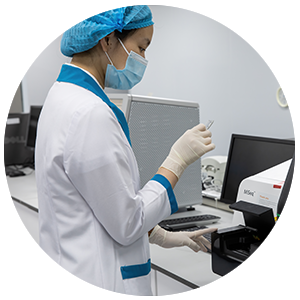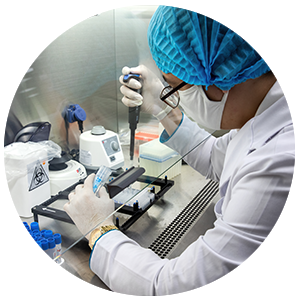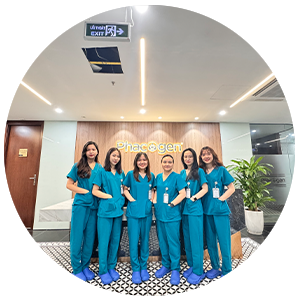Doctors and scientists from the German Cancer Research Center (DKFZ) and from the Faculty of Medicine of the University of Heidelberg, Mannheim, have successfully tested the first tissue-specific neoantigen gene transfer immune cell therapy Test model on mice.
Cellular immunotherapy that specifically targets malignant tumors is believed to be a promising approach in cancer medicine. However, the basic requirement for this type of targeted immunotherapy is to identify specific target molecules that are found on tumor cells and recognized by the immune system.
.
Glioblastoma is a malignant tumor that progresses rapidly, has a poor prognosis, metastasizes in the brain and cannot be completely removed by surgery. Lukas Bunse, an immunologist at DKFZ and a physician at the University Hospital Mannheim (UMM), explains: “Fibroids are difficult to treat, and the lack of suitable target structures is a significant challenge for with the development of immunotherapies.
.
T cells, a type of immune cell, are present with receptors on their surface, called T cell receptors, or TCRs. Normally these TCRs bind to antigens to mount an immune response. In an effort to use T cells for cancer treatment, T cells are collected from patients' blood. Then, in the laboratory, the T cells are engineered to produce special receptors on their surface called Chimeric antigen receptors, or CARs, that can bind to certain surface proteins. of specific cancer cells.
.
Using an experimental mouse model, Bunse and his team demonstrated for the first time that transgenic T cells targeting neoplastic tumors can be used to treat glioma. Tumor neoepitopes arise due to genetic mutations in cancer cells that lead to structural changes in the proteins produced. Therefore, they only occur in cancer cells. Using predictive modeling, Bunse and his research team identified a segment of the CIC (capicua transcriptional repressor) protein as a promising target structure for T-cell attacks; approximately two percent of all gliomas show a recurrent mutation. Mice vaccinated with the CIC neoepitope developed a population of T helper cells that showed high levels of activation in response to Vaccine peptides. Researchers used particularly aggressive T cells to isolate the gene for the T-cell receptor (TCR) responsible for epithelial recognition. They then transferred the gene containing the TCR receptor into the cells, thus being able to grow large numbers of "transgenic" T cells in a petri dish that all had an identical, highly active TCR targeting CIC neoepitope.
.
To study their effectiveness, the researchers injected the transgenic cells directly into the ventricles of glioma-bearing mice. Combined with radiation therapy, T-cell therapy has led to glioma rejection in some animals.
.
Michael Kilian, lead author of the study, explains: “Here, for the first time, we have demonstrated in an experimental model that a gene-transfer cell therapy containing a neoantigen-specific TCR (a newly formed protein on cancer cells when certain mutations occur in the tumor's DNA) can effectively fight glioma. “These types of specific TCR transgenic T cells could be used in the future in cancer patients who cannot be treated using CAR T cells,” he added.
.
Chimeric antigen receptor (CAR) T cells, approved to treat patients with B-cell leukemia, can only attack tumor antigens present on the surface of cancer cells. However, these proteins are typically not found only on tumor cells, so CAR T cells can also damage healthy tissues.
.
Conversely, TCR transgenic T cells can also attack spike proteins from within the cell, which must be exposed to the cell surface by special presentation molecules called complex proteins. major histocompatibility complex (MHC). Most T cells respond only to antigens presented by MHC molecules. Therefore, to achieve results that could be translated to humans, Lukas Bunse and his team needed to work with mice transgenic for human MHC molecules.
.
“Our work shows that TCR transgenic T cells also can be used to treat brain tumor patients. Working together with Wolfgang Wick, Medical Director of the Heidelberg Department of Neurology, Platten and his team of neuroscientists hope to use equivalent methods to refine TCR transgenic T-cell therapy and study it. in initial clinical trials.
.
Based on successes to date, there may be promise for a future of curing malignancies using T-cell therapy.
.
Translator: Ngoc Anh - Phacogen Institute of Technology;
(Master in Experimental Biology. University of Natural Sciences - Hanoi National University)
Referral:
T-Cell CAR therapy: A patient's own immune cells to treat their cancers.
http://www.cancer.gov/cancertopics/research-updates/2013/CAR-T-Cells.
Robson G. Dossa, Tanya Cunningham, Daniel Sommermeyer, Indira Medina-Rodriguez, Melinda A. Biernacki, Kimberly Foster, Marie Bleakley. Development of T cell immunotherapy for hematopoietic stem cell transplantation recipients at risk of leukemia relapse. Blood, 2017; blood-2017-07-791608 DOI: 10.1182/blood-2017-07-791608
.
Source of article:
https://www.sciencedaily.com/releases/2021/11/211115123437.htm





